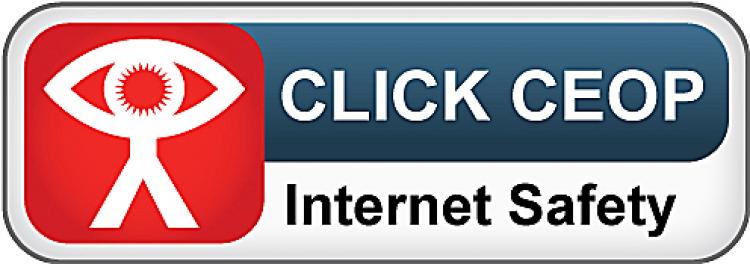E-Safety Advice
Essex Police have created some useful advice on how to 'Sort Your Settings' and stay safe online: www.essex.police.uk/SortYourSettings
With the increased reliance on technology for school work, an organisation called “think you know” have produced some information for parents that we feel may be helpful. See the videos below (updated fortnightly) for this guidance.
The internet can be a fantastic resource but it can also be a dangerous place if you don’t keep yourself safe and secure online. It is important to remember that not everyone you may meet on the internet will be who they say they are. So think very carefully about how you use the internet. Never give out your passwords or any private information for example. You must certainly never agree to meet anyone you’ve met online - always speak to your parents if you are asked to do so.
The internet is also a place where bullying can easily occur.
You need to think very carefully about any of the pictures or videos that you post of yourself. This includes items that you may send via text message. If you every receive any kind of abuse online you must tell someone about it, your parents, a family member, a teacher or a friend for example.
When should you report to CEOP?
CEOP help children stay safe online. Has someone acted inappropriately towards you online, or to a child or young person you know? It may be sexual chat, being asked to do something that makes you feel uncomfortable or someone being insistent on meeting up. You can report it to CEOP below.
Advice for students
- Don’t post any personal information online – like your address, email address or mobile number.
- Think carefully before posting pictures or videos of yourself. Once you’ve put a picture of yourself online most people can see it and may be able to download it, it’s not just yours anymore.
- Keep your privacy settings as high as possible
- Never give out your passwords
- Don’t befriend people you don’t know
- Don’t meet up with people you’ve met online. Speak to your parent or carer about people suggesting you do
- Remember that not everyone online is who they say they are
- Think carefully about what you say before you post something online
- Respect other people’s views, even if you don’t agree with someone else’s views doesn’t mean you need to be rude
- If you see something online that makes you feel uncomfortable, unsafe or worried; leave the website, turn off your computer if you want to and tell a trusted adult immediately.
Extra links and information
- Vodafone Digital Parenting: https://www.vodafone.com/content/digital-parenting/about.html
- Social Media for schools: a guide to Twitter, Facebook and Pinterest by Matt Britland, The Guardian, 26 July 2012
- Cyberbullying Guidance – supporting school staff www.digizen.org/resources/school-staff.aspx
- Young people and social networking sites – a guide for parents, carers and teachers www.childnet.com/downloads/blog_safety.pdf
- Facebook safety advice for educators www.facebook.com/help/441374602560317/
- Information on Safer Internet Day www.saferinternetday.org/web/teachtoday/home
- Resources from Childnet including a Social Networking Guide for Teachers www.childnet.com/resources/kia/
- Resources from the UK Safer Internet Centre www.saferinternet.org.uk/advice-and-resources/teachers-and-professionals
- How social media is used to encourage travel to Syria and Iraq – briefing note for schools (DfE, July 2015) www.gov.uk/government/publications/the-use-of-social-media-for-online-radicalisation
- The following website will give you some really good advice on how to stay safe online:Safe search kids.com
- The following booklet about cyberbullying is also very helpful:NSPCC - A Parents Guide to Being Share Aware
- "Nude Selfies - What Parent’s need to know” - please click the link below for advice https://www.thinkuknow.co.uk/parents/Nude-Selfies-What-parents-and-carers-need-to-know/
Hard copies of any of the documents listed can be obtained from the school Reception or requested via our admin email address on admin@westhatch.net

